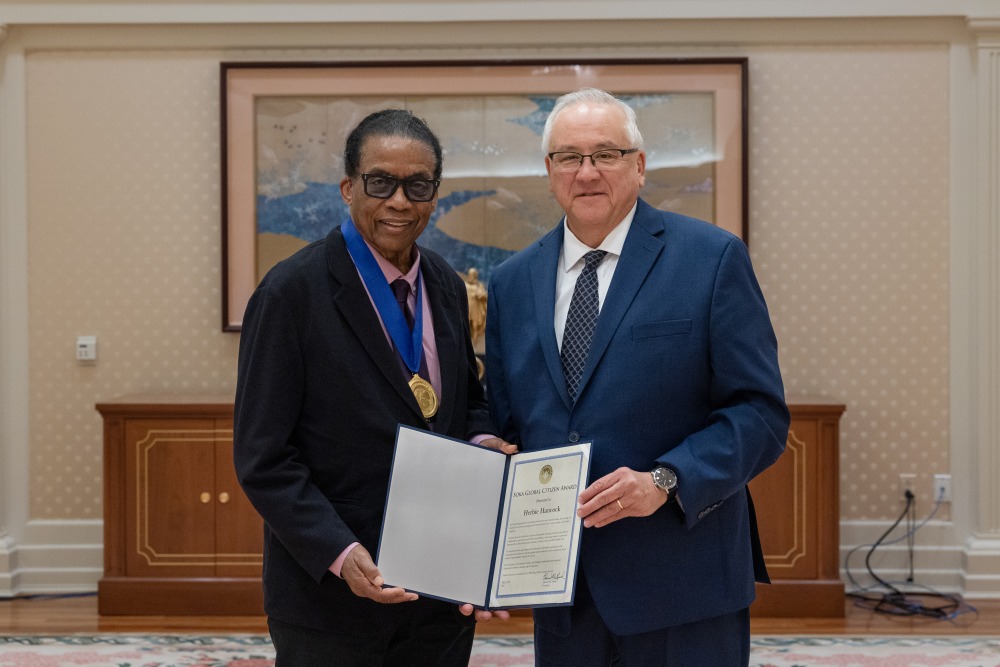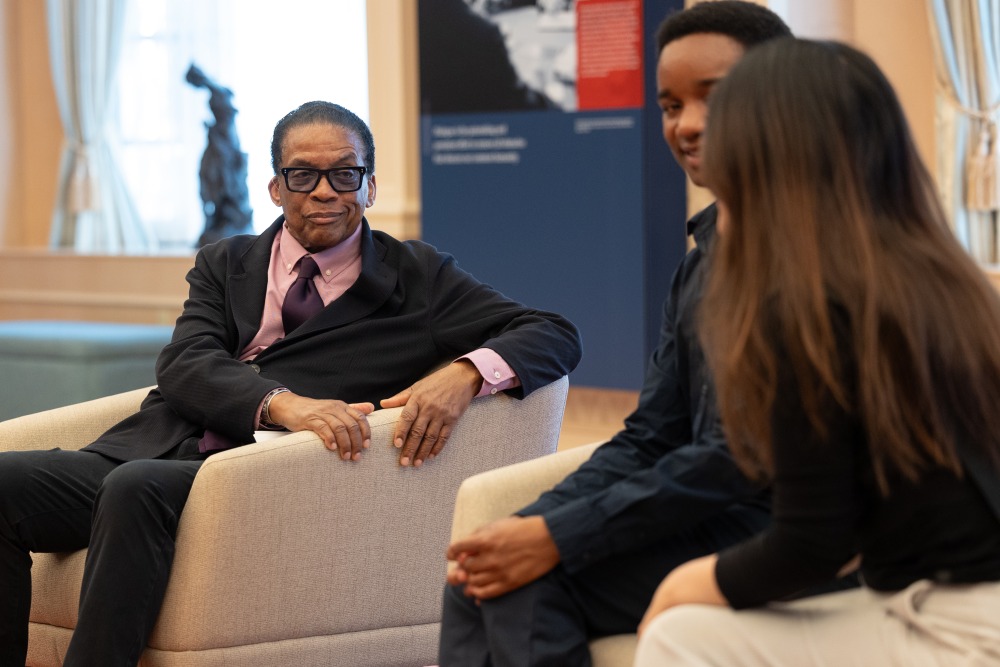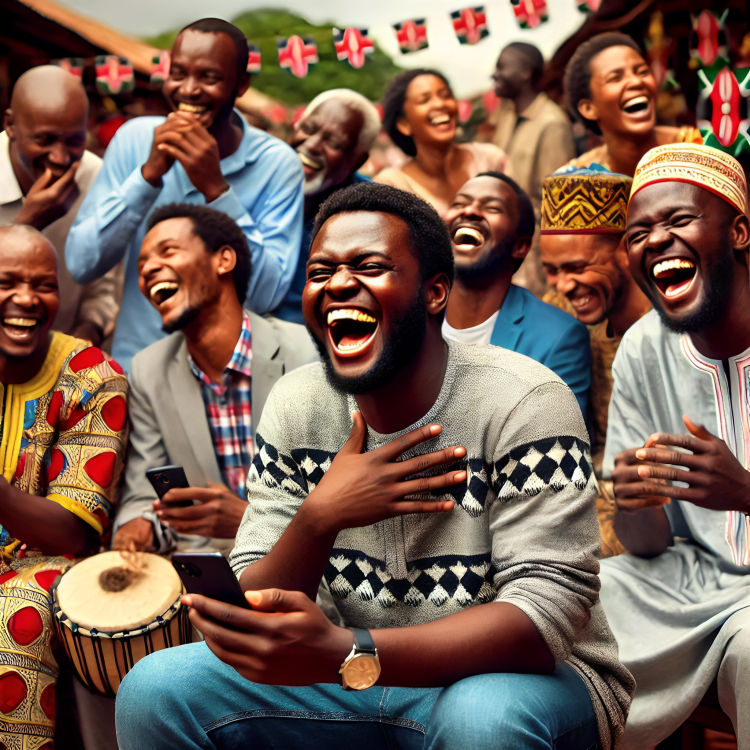"Creativity Is Something We Do Every Day": An Interview With 2025 Global Citizen Award Recipient Herbie Hancock | Soka University of America
“Creativity, like compassion, requires us to stay open,” said trailblazing jazz musician, composer, and global humanitarian Herbie Hancock during his remarks after receiving the 2025 Soka Global Citizen Award. “And openness is at the heart of global citizenship.”
The Soka Global Citizen Award was established in 2021 to recognize individuals who embody global citizenship and whose work has contributed significantly to promoting nonviolence, environmental sustainability, global justice and poverty reduction, or human equality and dignity. In a ceremony at Founders Hall on May 8, Hancock accepted the award not just for himself, he said, “but on behalf of all the musicians, educators, and dreamers who believe that creativity and human connection can change the world.”
As a UNESCO Goodwill Ambassador for Intercultural Dialogue, Hancock (alongside UNESCO Director General Audrey Azoulay) chairs International Jazz Day, an annual celebration of jazz that takes place in more than 190 countries. Through performances, cultural initiatives, and educational programming, each year over 2 billion people around the world engage with jazz music, the history of this powerful art form, and the ways jazz encourages intercultural understanding, respect for human dignity, and freedom of expression. Hancock is also chairman of the Herbie Hancock Institute of Jazz, a nonprofit educational organization that provides an array of music education programs free of charge, including college-level training at the UCLA Herb Alpert School of Music.
In his award ceremony speech, Hancock drew compelling connections between mastering jazz and developing the qualities of a global citizen. “While music teaches us to listen,” he said, “jazz specifically teaches us how to listen together. It teaches improvisation, adaptability, and active engagement. It’s about expressing yourself while also uplifting the voices around you.” When a musician in a jazz ensemble has a solo, he explained, “the others support — not with silence, but with conversation.”
Hancock especially stressed the importance of listening deeply and openly, asserting that “listening to other people’s music — really listening — can tell us a lot about their culture, their history, and their values. It’s one of the simplest and most powerful acts of empathy we can engage in.” He concluded his remarks with a call to the audience to “continue building bridges through music, through dialogue, through empathy and collaboration.”
In an interview prior to the ceremony, Hancock shared more thoughts and reflections on creativity and the role of jazz in cultural diplomacy.

Jazz is really about people working together and creating together, not competing with each other. When we play, we are there to help every other person in the band sound better. I think about how important the audience is too. I consider the audience to be an additional member of the band, in a sense, because they affect the outcome of the music. All of that is supportive of how the music flows.
But the main point is that it’s inclusive. It’s not the musicians performing on a stage with the lights, the attention, and the applause on them because they’re higher than anybody else. It’s not about that. It’s a shared experience. We’re all in it together. We’re all affecting everybody else just by our humanity.
On International Jazz Day, we perform with musicians from various countries throughout the world, who sometimes have instruments from their particular country. Indian musicians may be playing tablas, for example. In Australia, we had musicians playing the didgeridoo. In 2018, St. Petersburg, Russia, was the Global Host City for International Jazz Day. There is so much cultural history in Russia, so much art and music that has influenced the world. One of my favorite composers, Igor Stravinsky, was Russian, and “The Rite of Spring” is my favorite classical piece. That year was the first time I really felt International Jazz Day creating a feeling that the people on this planet are one. It was an amazing and encouraging experience to feel that.
I can give you another example. The Herbie Hancock Institute of Jazz — it was called the Thelonious Monk Institute of Jazz at that time — had a competition. Tigran Hamasyan, who is from Armenia, won the piano competition. In his interpretation of a song written by Thelonious Monk, he was able to play some of the flavors of Armenian music. The twists and turns were amazing and gave a whole new flavor to the music. He is a brilliant pianist. I always get scared when I’m playing a concert with him. I tell him, “I want to study with you.”

on the ethics of jazz, you talked about how creativity is not just for artists, but for anyone who wants to master the art of living with integrity, wisdom, and compassion. Given that college is often a very formative time of self-discovery and honing new skills, what insights on creativity would you like to share with SUA students as they strive to become global citizens who use their education to serve humanity?
Creativity is something we do every day. It’s speaking to someone and using that life-to-life dialogue, sharing your experiences and what you’ve learned. You’re not doing all the talking; you’re asking questions and finding out how the other person feels. If you don’t agree, instead of blocking that out, listen with a sense of sharing that experience and maybe learning something. What are the reasons for the opinion they have? It could have been a childhood experience or something they read. And you can learn from that. Sometimes, it can help shape the quality of your own beliefs and expand them, giving them more teeth and more dimensions. Instead of your beliefs being one-dimensional — the dimension of your opinion. Sharing that experience, that’s how we learn. But you have to be open to be able to do that. You can’t just hold on to your own beliefs.









